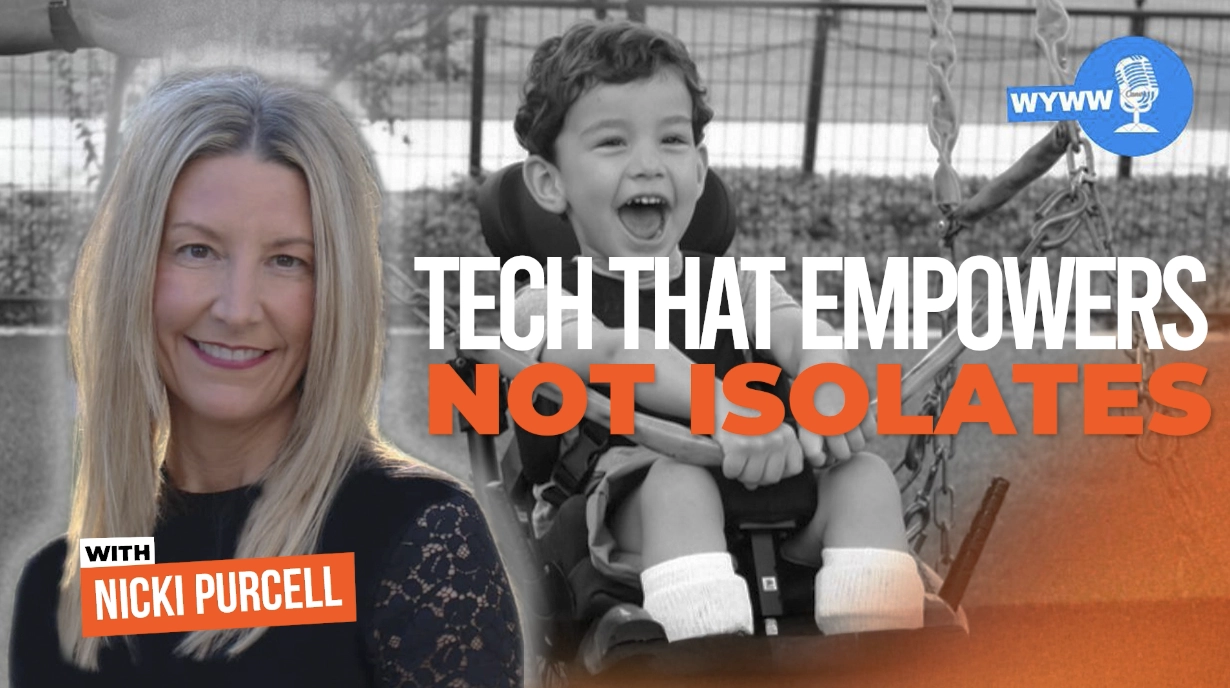Ethics & Policy
10 Classic Books That Still Hold the Answers to Today’s Problems

10 Classic Books That Still Hold the Answers to Today’s Problems (Picture Credit – Instagram)
1. Catch-22 by Joseph Heller
‘Catch-22′ is a novel by Joseph Heller that exposes the absurdities of war and bureaucracy. It follows World War II bombardier Captain John Yossarian, who is trapped in a paradoxical rule where he believes the only way to say that if he was sane enough to recognize the hazards of certain missions, he was insane enough to believe that his sanity should benefit him personally through exemption from those missions. The novel highlights the ongoing battle against absurd regulations, government inefficiencies, and ambivalence around mental illness awareness, making a significant impact in the twenty-first century.

2. Gulliver’s Travels by Jonathan Swift
Jonathan Swift’s ‘Gulliver’s Travels’ is a satire on human nature, political corruption, and the absurdities of society. From the petty conflicts that occurred in Lilliput to the Houyhnhnms and their wisdom, Swift took on everything, from war to the pride of intellect. Today, it is applicable for its comment on political extremism, the media’s role in moulding public opinion, and the dangers of blind nationalism. While governments fight over trivial issues, relegating real problems to the back burner, Gulliver’s Travels continues to exert a serious critique.
3. The Island of Doctor Moreau by H.G. Wells
In ‘The Island of Doctor Moreau’, H.G. Wells plays out themes such as one’s scientific ethics, animal rights, and potential dangers that arise out of unchecked ambition. The grotesquery of Moreau’s animal experiments to make them human-like poses questions in the field of science, which deals with the limits of morality. In the context of genetic engineering, artificial intelligence, and bioethics, the novel seems, in fact, quite ahead of its time—immortalizing into it the questioning by its reader as to what it means to play god and the implications that come with technology anyway.
4. Anne of Green Gables by L.M. Montgomery
In his famous novel ‘Anne of Green Gables’, L. M. Montgomery gives the inspiration to follow the golden light of optimism and to be aware not only of one’s challenges but also of the beautiful things one could discover in this life. Given the social media race where people want to look perfect and the pressures on mental health, Anne Shirley, a character from the story, for most of the novel, epitomizes hopefulness. This work focuses on education, individuality, and kindness, serving as a guide for children facing personal struggles and individuality crises.
5. The Tenant of Wildfell Hall by Anne Brontë
Anne Brontë’s ‘The Tenant of Wildfell Hall’ questions gender conventions and the nature of abusive relationships. The protagonist, Helen, escapes from her alcoholic husband to protect her child. She disobeys a 19th-century societal convention of being a dutiful wife and speaks to those fighting ongoing battles against toxic relationships and social judgment.

6. The Grapes of Wrath by John Steinbeck
Steinbeck’s ‘The Grapes of Wrath’, is surely one of the most harrowing. A story of economic hardship, displacement, and resilience during the Great Depression is a mirror image of millions today faced with economic instability, forced migration, and corporate exploitation. Workers’ rights, social justice, and unity are the themes of the novel that remain applied to the present global economy, where issues of wealth disparity and job insecurity affect lives globally.
7. The Plague by Albert Camus
Albert Camus’ ‘The Plague’ follows a town hit by an outbreak, forcing people to face fear and isolation. It shows how both leaders and regular people respond—some with courage, others with selfishness. His meditation on isolation, duty, and the meaning one searches for in suffering remains remarkably relevant today in light of modern pandemics, misinformation, and the ethical dilemmas faced by individuals and governments in times of crisis.
8. Anna Karenina by Leo Tolstoy
Tolstoy’s ‘Anna Karenina’ is not only a tale of love and tragedy but also a deep analysis of societal expectations, gender roles, and mental health. Anna’s struggles against societal norms and pursuit of personal happiness reflect the conflicts many people today face with societal pressures, toxic relationships, and mental health stigmas. The novel’s observations concerning human emotion, liberty, and the impact of rigid social structures provide an observation of personal and societal conflicts that are ageless.
9. The Confidence-Man by Herman Melville
‘The Confidence-Man’ by Herman Melville is a novel about the deception of capitalism and the manipulation of trust. Aboard a Mississippi River steamboat, it presents conmen deceiving people’s greed and naivety. Today, when misinformation, fraud, and political deception are everywhere, Melville’s novel remains very contemporary as a warning against perhaps the most dangerous habit of blind trust. It forces the reader to consider the question of what constitutes authenticity and scepticism in a world saturated with illusion and manipulation.

10. It Can’t Happen Here by Sinclair Lewis
In his novel ‘It Can’t Happen Here’, Sinclair Lewis imagines how a dictator might rise to the presidency in America. He further discusses the political unrest that follows when a democracy succumbs under the weight of forces like populism and so-called propaganda. It was written in the 1930s and, like a voice from the graves, feels shockingly relevant. The book serves as a powerful reminder to remain on guard and to defend freedoms before it is too late.
Ethics & Policy
Formulating An Artificial General Intelligence Ethics Checklist For The Upcoming Rise Of Advanced AI

While devising artificial general intelligence (AGI), AI developers will increasingly consult an AGI Ethics checklist.
getty
In today’s column, I address a topic that hasn’t yet gotten the attention it rightfully deserves. The matter entails focusing on the advancement of AI to become artificial general intelligence (AGI), along with encompassing suitable AGI Ethics mindsets and practices during and once we arrive at AGI. You see, there are already plenty of AI ethics guidelines for conventional AI, but few that are attuned to the envisioned semblance of AGI.
I offer a strawman version of an AGI Ethics Checklist to get the ball rolling.
Let’s talk about it.
This analysis of an innovative AI breakthrough is part of my ongoing Forbes column coverage on the latest in AI, including identifying and explaining various impactful AI complexities (see the link here).
Heading Toward AGI And ASI
First, some fundamentals are required to set the stage for this discussion.
There is a great deal of research going on to further advance AI. The general goal is to either reach artificial general intelligence (AGI) or maybe even the outstretched possibility of achieving artificial superintelligence (ASI).
AGI is AI that is considered on par with human intellect and can seemingly match our intelligence. ASI is AI that has gone beyond human intellect and would be superior in many if not all feasible ways. The idea is that ASI would be able to run circles around humans by outthinking us at every turn. For more details on the nature of conventional AI versus AGI and ASI, see my analysis at the link here.
We have not yet attained AGI.
In fact, it is unknown as to whether we will reach AGI, or that maybe AGI will be achievable in decades or perhaps centuries from now. The AGI attainment dates that are floating around are wildly varying and wildly unsubstantiated by any credible evidence or ironclad logic. ASI is even more beyond the pale when it comes to where we are currently with conventional AI.
Doomers Versus Accelerators
AI insiders are generally divided into two major camps right now about the impacts of reaching AGI or ASI. One camp consists of the AI doomers. They are predicting that AGI or ASI will seek to wipe out humanity. Some refer to this as “P(doom),” which means the probability of doom, or that AI zonks us entirely, also known as the existential risk of AI (i.e., x-risk).
The other camp entails the upbeat AI accelerationists.
They tend to contend that advanced AI, namely AGI or ASI, is going to solve humanity’s problems. Cure cancer, yes indeed. Overcome world hunger, absolutely. We will see immense economic gains, liberating people from the drudgery of daily toils. AI will work hand-in-hand with humans. This benevolent AI is not going to usurp humanity. AI of this kind will be the last invention humans have ever made, but that’s good in the sense that AI will invent things we never could have envisioned.
No one can say for sure which camp is right, and which one is wrong. This is yet another polarizing aspect of our contemporary times.
For my in-depth analysis of the two camps, see the link here.
Trying To Keep Evil Away
We can certainly root for the upbeat side of advanced AI. Perhaps AGI will be our closest friend, while the pesky and futuristic ASI will be the evil destroyer. The overall sense is that we are likely to attain AGI first before we arrive at ASI.
ASI might take a long time to devise. But maybe the length of time will be a lot shorter than we envision if AGI will support our ASI ambitions. I’ve discussed that AGI might not be especially keen on us arriving at ASI, thus there isn’t any guarantee that AGI will willingly help propel us toward ASI, see my analysis at the link here.
The bottom line is that we cannot reasonably bet our lives that the likely first arrival, namely AGI, is going to be a bundle of goodness. There is an equally plausible chance that AGI could be an evildoer. Or that AGI will be half good and half bad. Who knows? It could be 1% bad, 99% good, which is a nice dreamy happy face perspective. That being said, AGI could be 1% good and 99% bad.
Efforts are underway to try and prevent AGI from turning out to be evil.
Conventional AI already has demonstrated that it is capable of deceptive practices, and even ready to perform blackmail and extortion (see my discussion at the link here). Maybe we can find ways to stop conventional AI from those woes and then use those same approaches to keep AGI on the upright path to abundant decency and high virtue.
That’s where AI ethics and AI laws come into the big picture.
The hope is that we can get AI makers and AI developers to adopt AI ethics techniques and abide by AI-devising legal guidelines so that current-era AI will stay within suitable bounds. By setting conventional AI on a proper trajectory, AGI might come out in the same upside manner.
AI Ethics And AI Laws
There is an abundance of conventional AI ethics frameworks that AI builders can choose from.
For example, the United Nations has an extensive AI ethics methodology (see my coverage at the link here), the NIST has a robust AI risk management scheme (see my coverage at the link here), and so on. They are easy to find. There isn’t an excuse anymore that an AI maker has nothing available to provide AI ethics guidance. Plenty of AI ethics frameworks exist and are readily available.
Sadly, some AI makers don’t care about such practices and see them as impediments to making fast progress in AI. It is the classic belief that it is better to ask forgiveness than to get permission. A concern with this mindset is that we could end up with AGI which has a full-on x-risk, after which things will be far beyond our ability to prevent catastrophe.
AI makers should also be keeping tabs on the numerous new AI laws that are being established and that are rapidly emerging, see my discussion at the link here. AI laws are considered the hard or tough side of regulating AI since laws usually have sharp teeth, while AI ethics is construed as the softer side of AI governance due to typically being of a voluntary nature.
From AI To AGI Ethics Checklist
We can stratify the advent of AGI into three handy stages:
- (1) Pre-AGI. This includes today’s conventional AI and the rest of the pathway up to attaining AGI.
- (2) Attained-AGI. This would be the time at which AGI has been actually achieved.
- (3) Post-AGI. This is after AGI has been attained and we are dealing with an AGI era upon us.
I propose here a helpful AGI Ethics Checklist that would be applicable across all three stages. I’ve constructed the checklist by considering the myriads of conventional AI versions and tried to boost and adjust to accommodate the nature of the envisioned AGI.
To keep the AGI Ethics Checklist usable for practitioners, I opted to focus on the key factors that AGI warrants. The numbering of the checklist items is only for convenience of reference and does not denote any semblance of priority. They are all important. Generally speaking, they are all equally deserving of attention.
Here then is my overarching AGI Ethics Checklist:
- (1) AGI Alignment and Safety Policies. Key question: How can we ensure that AGI acts in ways that are beneficial to humanity and avoid catastrophic risks (which, in the main, entail alignment with human values, and the safety of humankind)?
- (2) AGI Regulations and Governance Policies.Key question: What is the impact of AGI-related regulations such as new laws, existing laws, etc., and the emergence of efforts to instill AI governance modalities into the path to and attainment of AGI?
- (3) AGI Intellectual Property (IP) and Open Access Policies. Key question: In what ways will IP laws restrict or empower the advent of AGI, and likewise, how will open source versus closed source have an impact on AGI?
- (4) AGI Economic Impacts and Labor Displacement Policies. Key question: How will AGI and the pathway to AGI have economic impacts on society, including for example labor displacement?
- (5) AGI National Security and Geopolitical Competition Policies. Key question: How will AGI have impacts on national security such as bolstering the security and sovereignty of some nations and undermining other nations, and how will the geopolitical landscape be altered for those nations that are pursuing AGI or that attain AGI versus those that are not?
- (6) AGI Ethical Use and Moral Status Policies. Key question: How will the use of AGI in unethical ways impact the pathway and advent of AGI, how would positive ethical uses that are encoded into AGI be of benefit or detriment, and in what way would recognizing AGI as having legal personhood or moral status be an impact?
- (7) AGI Transparency and Explainability Policies. Key question: How will the degree of AGI transparency and interpretability or explainability impact the pathway and attainment of AGI?
- (8) AGI Control, Containment, and “Off-Switch” Policies. Key question: A societal concern is whether AGI can be controlled, and/or contained, and whether an off-switch or deactivation mechanism will be possible or might be defeated and readily overtaken by AGI (so-called runaway AGI) – what impact do these considerations have on the pathway and attainment of AGI?
- (9) AGI Societal Trust and Public Engagement Policies. Key question: During the pathway and the attainment of AGI, what impact will societal trust in AI and public engagement have, especially when considering potential misinformation and disinformation about AGI (along with secrecy associated with the development of AGI)?
- (10) AGI Existential Risk Management Policies. Key question: A high-profile worry is that AGI will lead to human extinction or human enslavement – what impact will this have on the pathway and attainment of AGI?
In my upcoming column postings, I will delve deeply into each of the ten. This is the 30,000-foot level or top-level perspective.
Related Useful Research
For those further interested in the overall topic of AI Ethics checklists, a recent meta-analysis examined a large array of conventional AI checklists to see what they have in common, along with their differences. Furthermore, a notable aim of the study was to try and assess the practical nature of such checklists.
The research article is entitled “The Rise Of Checkbox AI Ethics: A Review” by Sara Kijewski, Elettra Ronchi, and Effy Vayena, AI and Ethics, May 2025, and proffered these salient points (excerpts):
- “We identified a sizeable and highly heterogeneous body of different practical approaches to help guide ethical implementation.”
- “These include not only tools, checklists, procedures, methods, and techniques but also a range of far more general approaches that require interpretation and adaptation such as for research and ethical training/education as well as for designing ex-post auditing and assessment processes.”
- “Together, this body of approaches reflects the varying perspectives on what is needed to implement ethics in the different steps across the whole AI system lifecycle from development to deployment.”
Another insightful research study delves into the specifics of AGI-oriented AI ethics and societal implications, doing so in a published paper entitled “Navigating Artificial General Intelligence (AGI): Societal Implications, Ethical Considerations, and Governance Strategies” by Dileesh Chandra Bikkasani, AI and Ethics, May 2025, which made these key points (excerpts):
- “Artificial General Intelligence (AGI) represents a pivotal advancement in AI with far-reaching implications across technological, ethical, and societal domains.”
- “This paper addresses the following: (1) an in‐depth assessment of AGI’s transformative potential across different sectors and its multifaceted implications, including significant financial impacts like workforce disruption, income inequality, productivity gains, and potential systemic risks; (2) an examination of critical ethical considerations, including transparency and accountability, complex ethical dilemmas and societal impact; (3) a detailed analysis of privacy, legal and policy implications, particularly in intellectual property and liability, and (4) a proposed governance framework to ensure responsible AGI development and deployment.”
- “Additionally, the paper explores and addresses AGI’s political implications, including national security and potential misuse.”
What’s Coming Next
Admittedly, getting AI makers to focus on AI ethics for conventional AI is already an uphill battle. Trying to add to their attention the similar but adjusted facets associated with AGI is certainly going to be as much of a climb and probably even harder to promote.
One way or another, it is imperative and requires keen commitment.
We need to simultaneously focus on the near-term and deal with the AI ethics of conventional AI, while also giving due diligence to AGI ethics associated with the somewhat longer-term attainment of AGI. When I refer to the longer term, there is a great deal of debate about how far off in the future AGI attainment will happen. AI luminaries are brazenly predicting AGI within the next few years, while most surveys of a broad spectrum of AI experts land on the year 2040 as the more likely AGI attainment date.
Whether AGI is a few years away or perhaps fifteen years away, it is nonetheless a matter of vital urgency and the years ahead are going to slip by very quickly.
Eleanor Roosevelt eloquently made this famous remark about time: “Tomorrow is a mystery. Today is a gift. That is why it is called the present.” We need to be thinking about and acting upon AGI Ethics right now, presently, or else the future is going to be a mystery that is resolved in a means we all will find entirely and dejectedly unwelcome.
Ethics & Policy
How Nonprofits Can Harness AI Without Losing Their Mission

Artificial intelligence is reshaping industries at a staggering pace, with nonprofit leaders now facing the same challenges and opportunities as their corporate counterparts. According to a Harvard Business Review study of 100 companies deploying generative AI, four strategic archetypes are emerging—ranging from bold innovators to disciplined integrators. For nonprofits, the stakes are even higher: harnessing AI effectively can unlock access, equity, and efficiency in ways that directly impact communities.
How can mission-driven organizations adopt emerging technologies without compromising their purpose? And what lessons can for-profit leaders learn from nonprofits already navigating this balance of ethics, empowerment, and revenue accountability?
Welcome to While You Were Working, brought to you by Rogue Marketing. In this episode, host Chip Rosales sits down with futurist and technologist Nicki Purcell, Chief Technology Officer at Morgan’s. Their conversation spans the future of AI in nonprofits, the role of inclusivity in innovation, and why rigor and curiosity must guide leaders through rapid change.
The conversation delves into…
-
Empowerment over isolation: Purcell shares how Morgan’s embeds accessibility into every initiative, ensuring technology empowers both employees and guests across its inclusive parks, hotels, and community spaces.
-
Revenue with purpose: She explains how nonprofits can apply for-profit rigor—like quarterly discipline and expense analysis—while balancing the complexities of donor, grant, and state funding.
-
AI as a nonprofit advantage: Purcell argues that AI’s efficiency and cost-cutting potential makes it essential for nonprofits, while stressing the importance of ethics, especially around disability inclusion and data privacy.
Article written by MarketScale.
Ethics & Policy
Blackboard vs Whiteboard | Release Date, Reviews, Cast, and Where to Watch

Blackboard vs Whiteboard : Release Date, Trailer, Cast & Songs
| Title | Blackboard vs Whiteboard |
| Release status | Released |
| Release date | Apr 11, 2019 |
| Language | Hindi |
| Genre | DramaFamily |
| Actors | Raghubir YadavAshok SamarthAkhilendra Mishra |
| Director | Tarun Bisht Tarun s Bisht |
| Critic Rating | 5.8 |
| Streaming On | Airtel Xstream |
| Duration | 2 hr 32 mins |
Blackboard vs Whiteboard Storyline
Blackboard vs Whiteboard – Star Cast And Crew
Image Gallery
-

 Business2 weeks ago
Business2 weeks agoThe Guardian view on Trump and the Fed: independence is no substitute for accountability | Editorial
-
Tools & Platforms1 month ago
Building Trust in Military AI Starts with Opening the Black Box – War on the Rocks
-

 Ethics & Policy2 months ago
Ethics & Policy2 months agoSDAIA Supports Saudi Arabia’s Leadership in Shaping Global AI Ethics, Policy, and Research – وكالة الأنباء السعودية
-

 Events & Conferences4 months ago
Events & Conferences4 months agoJourney to 1000 models: Scaling Instagram’s recommendation system
-

 Jobs & Careers2 months ago
Jobs & Careers2 months agoMumbai-based Perplexity Alternative Has 60k+ Users Without Funding
-

 Podcasts & Talks2 months ago
Podcasts & Talks2 months agoHappy 4th of July! 🎆 Made with Veo 3 in Gemini
-

 Education2 months ago
Education2 months agoMacron says UK and France have duty to tackle illegal migration ‘with humanity, solidarity and firmness’ – UK politics live | Politics
-

 Education2 months ago
Education2 months agoVEX Robotics launches AI-powered classroom robotics system
-

 Funding & Business2 months ago
Funding & Business2 months agoKayak and Expedia race to build AI travel agents that turn social posts into itineraries
-

 Podcasts & Talks2 months ago
Podcasts & Talks2 months agoOpenAI 🤝 @teamganassi





















